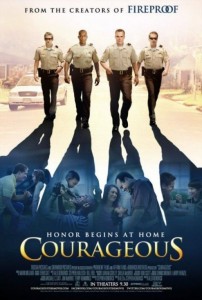Oct 16, 2011
This was not so much a movie as a (very long) sermon. In fact, it's a sermon that actually culminates in a sermon, as Kendrick's character spells out what he has learned in a message delivered to his church congregation.
Despite its well-meaning intentions, Courageous fails to say anything new about fatherhood, family, faith or anything else, for that matter. The few funny or moving scenes are surrounded by clunky acting, overly-moralistic dialogue and a plot that is trying to be three movies in one -- and none of them terribly believable.
Read the Full Article

Already a subscriber? Login
